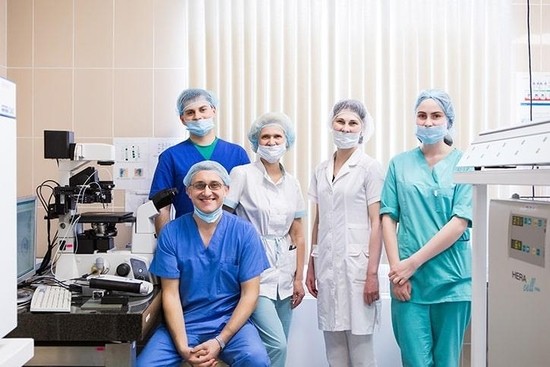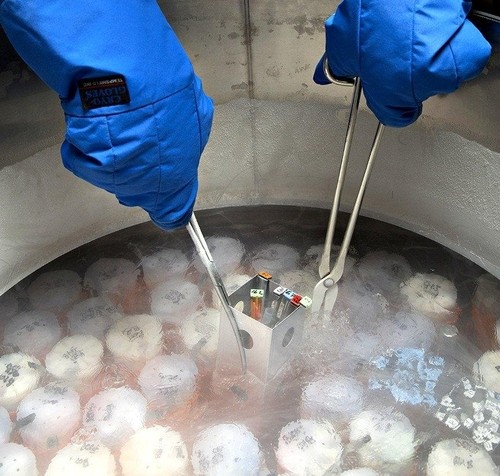Main reasons of growing popularity of egg freezing all over the world.
According to statistics, modern women are trying to play the role of mother for the first time approaching the age of 30. The desire to “live for oneself”, build up a business, establish social ties delays motherhood indefinitely. And when, already in adulthood, when there is a need for a loved one, problems with fertility may arise. Decreased egg quality, chronic diseases, bad habits and other adversities reduce the chances of a successful conception.
Therefore, the service “egg freezing is becoming increasingly popular. With her help, a woman can delay pregnancy without losing the quality of her germ cells. The only moment, in this case, pregnancy occurs when using IVF technology (in vitro fertilization) and not naturally. Center for human reproduction of Professor A. Feskov offers a guaranteed package IVF program with an own or donor egg selected according to the desired phenotype or personal wishes.
Why are more and more women freezing their eggs?
Thanks to the achievements of medicine, over the past five years, the demand for cryopreservation of oocytes has grown fivefold. The practical experience of reproductive doctors has shown that unfrozen oocytes fully retain their properties and are in no way inferior to their fresh specimens. Pregnancy is achieved in 52% of women who have used oocytes stored in a cryobank. The success of the procedure is entirely due to the age of the patient. If the oocytes are frozen until the age of 35, the chances of success will be even higher than with a natural conception at a later age.

In men, it is known that fresh germ cells are produced all the time throughout life. Unlike a woman who is born with an already defined number of them. With each menstrual cycle, she loses one or two eggs. At the same time, with age, their quality decreases. For example, in the body of the 30-year-old woman half of the oocytes are genetically healthy, and when her age is 45 years old, only 2% of normal cells remain! It is for that reason that pregnant women after 40 years old have chromosomal abnormalities in the fetus. Therefore, it is recommended to preserve the eggs in childbearing age – 20-35 years.
There are enough situations, both medical and social, why women turn to such a procedure:
- Preservation of normal oocytes in order to use them later in vitro fertilization.
- Before toxic treatment with radiation and chemotherapy of oncological diseases (if you want to give birth to a healthy baby in the future), since such drugs adversely affect the reproduction function in general and the ovaries in particular.
- To use their germ cells for donation and surrogacy.
- Before operations on the reproductive organs (for example, removal of the ovaries), with a diagnosis of polycystic ovaries, with premature menopause in the genus, etc .
- In order not to re-collect oocytes during IVF if the partner has low sperm count. The cells in the frozen state remain until the cause is clarified and the necessary treatment for the partner is carried out.
- To postpone motherhood for one reason or another for an indefinite time, while preserving its reproductive resource.
As a result of the increasing availability of this service and the decline in its cost, women have been able to maintain their fertility and control their reproduction schedule without difficulty.
Oocyte cryopreservation process
Consider in detail the stages of the medical process of cryopreservation, which lasts about a month:
Stimulation of superovulation. In normal life, during one menstrual cycle, 1-2 eggs mature, but this is not enough to freeze. Therefore, doctors prescribe individually selected hormonal medicines that first turn off the ovarian function, and then, on the contrary, stimulate it. To form as many oocytes as possible (15-20 eggs).
Egg collection. After maturation, through “transvaginal puncture” – a needle inserted into the vagina punctures the follicles and normal oocytes get. This lasts within half an hour and is performed under local anesthesia with a slight numbness.
Cryopreservation of cells in an ultrafast manner – vitrification. After the selection of viable, good eggs, they are washed from the liquid and treated with a special tool – a cryoprotectant, which protects them from ultra-low temperatures and maintains quality. After that, they are placed in a cryocarrier in the form of a straw, then in Dewar vessels, marked with the patient’s data and the date of the procedure and placed in liquid nitrogen with a temperature of 196 ° C.
When necessary, the material is thawed using a special procedure, when the cryoprotectant is replaced back with water. Frozen in a cryobank, they can be stored indefinitely for a fixed fee. Freezing does not affect the functionality of female germ cells. After thawing, 97% of them are fully usable.
At the Center for human reproduction of Professor A. Feskov you can either freeze your eggs or take advantage of the cryopreserved donor eggs stored in the cryobank of the clinic. If necessary, there is a service for transporting frozen oocytes to any country in the world for the implementation of reproductive programs.

Oocyte freezing – a fashion tribute or an urgent need?
More than 10 thousand children in the world who saw the world through IVF with frozen oocytes. In the course of observations, there was no significant difference between them and children who were born naturally.
With the popularity of the service, an increasing number of successful women began to use it. Many businesswomen, popular actresses and celebrities cryopreserve their eggs to become mothers when the time is right. Now they can’t worry about the biological clock, which every year goes faster.
Sometimes, such a procedure is prescribed for medical reasons discussed above. For a woman with cancer, or before surgery, this is not just a whim – but a vital need. In the future, to be able to fold a baby to the breast, despite all the ups and downs and health troubles.
Specialists of the Center for human reproduction of Professor A. Feskov know how much effort, time, moral and material resources need to be put on the altar of happiness of the birth of their continuation and, at the same time, guarantee success. Detailed advice on cryopreservation of genetic material, IVF, surrogacy can be obtained from online chat managers.

